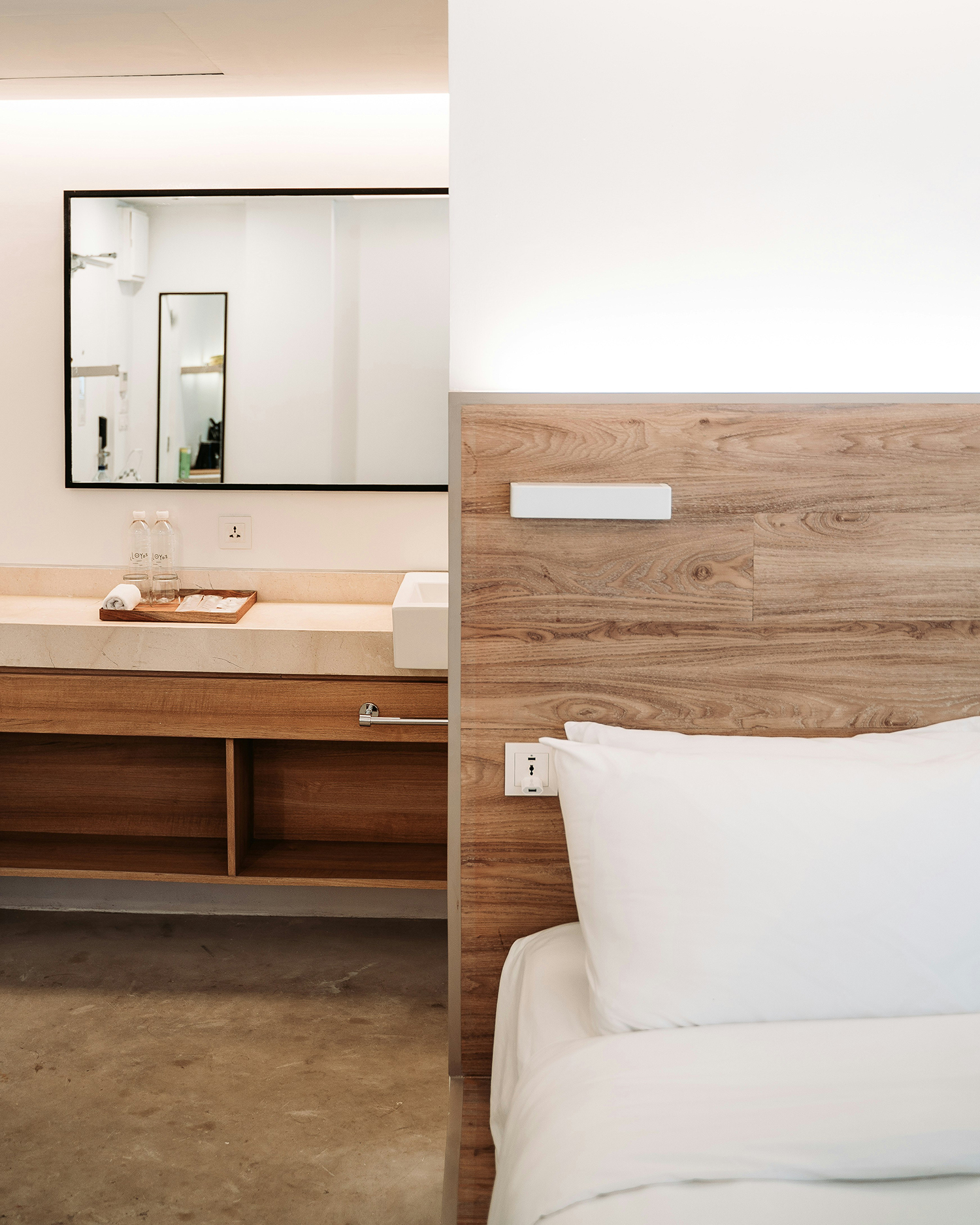
Booking a Hotel? 5 Red Flags You Should Never Overlook
Check out these warning signs before you check in.

Thomas Barwick/Getty Images
It doesn’t matter if you’re glamping near a national park or enjoying some much-needed R&R beachside, one thing’s for sure: A hotel can make or break your vacation. Of course, finding A-plus accommodations is easier said than done. While a lot of properties might draw you in with gorgeous pictures or great deals , there’s always the risk that a hotel doesn’t live up to the hype.
The good news? There are a few red flags travel pros always watch out for when booking their next trip—which can help you suss out the spaces that are actually up to snuff. That’s where Kristen Kellogg comes. As the co-founder of Salt + Wind Travel, a full-service travel agency based in California, Kellogg has seen it all: The good, the bad, and the “can I get a refund?” Today, she’s sharing her biggest hotel red flags—and how you can avoid them during your next vacation.
While these pointers are certainly helpful, Kellogg’s biggest tip is to listen to your instincts. “They’re more accurate than you realize,” she explains. “If something feels off during the booking process, investigate further.”

Radoslav Bali/Unsplash
1. Falling for Instagram Bait
A picture might be worth a thousand words, but Kellogg says to exercise caution when swiping through a property’s feed. “The most devastating mistake I see is booking based purely on Instagram-worthy photos without considering practical logistics,” she explains. “I’ve witnessed clients save money on a ‘charming’ inn only to discover it’s an hour from the city center with no reliable transportation, where they are unwilling to self-drive.”
While there’s nothing inherently wrong with a hotel whose website is packed with beautiful photography, Kellogg also recommends looking for pictures captured by guests. “Authentic guest images reveal whether that ‘beachfront’ view actually faces a construction site,” she explains. It’s also worth noting that most discerning travelers will also post pictures of any cleanliness issues they’ve encountered—such as a moldy bathtub or stained sheets—so these photos will also help call out any hygiene red flags.
2. Reviews with Common Themes
Before you book a stay at any hotel, you always have to check out the reviews. However, Kellogg says she prefers to approach the topic like “a sommelier tasting wine. Look for balanced reviews mentioning specific details rather than generic praise or complaints,” she explains.
Reviews that are posted within six months should typically hold the most weight as they’re likely to resemble your upcoming reservation. It’s also important to consider your source: Kellogg particularly values reviews from seasoned travelers with established profiles and photos since they’ll usually have a thorough understanding of what makes a hotel great… and not-so-great.
Similar to buying a home, choosing a hotel is a surprisingly personal decision. No single property is going to be adored by everyone, so it’s only natural to see some less favorable assessments. However, consistent complaints should be a cause for concern. “The most reliable indicators are consistent themes across multiple reviewers,” she says. “If several guests mention the same issue, take notice.”

Thomas Barwick/Getty
3. Undisclosed Prices and Peculiar Policies
We’re not going to sugarcoat it: Hotels can get pricey, but you should always check the fine print before booking. “Watch for mandatory resort fees buried in fine print,” Kellogg explains. “Be wary of hotels demanding large security deposits or unusual payment methods.” In her opinion, legitimate hotels have transparent, reasonable protocol—so you’ll also want to give the cancellation policy a once-over.
Sure, you probably have no intention of cancelling your trip; however, personal emergencies and natural disasters happen. And isn’t it better to be safe than sorry?
4. Vague Wording
Who hasn’t accidentally booked a hotel that’s supposedly “minutes away from the ocean”—only to discover the property has no beach access. “In California wine country, suspiciously low prices during harvest season often indicate properties [that are far] from actual vineyards and things you may want to do,” she adds. “Vague amenity descriptions like ‘fitness facilities’ might mean a single treadmill.”
Is vague language on a hotel’s website a crime? No. Should you do your due diligence? Absolutely, Kellogg says. If Google Maps or previous reviews can’t answer your question, call your prospective hotel for more information. Of course, that leads us to our next red flag…

Thomas Barwick/Getty Images
5. Less-Than-Clear Communication
“Excellent hotels anticipate needs and respond promptly with detailed, helpful information that demonstrates genuine care for guest experience,” Kellogg shares. While the most hospitable spaces will field any questions or inquiries with the utmost care, unhelpful or unfriendly messages are a hard pass. “I’m particularly wary when staff can’t provide clear directions, local recommendations, or basic property information,” she says.“This indicates either poor training or high turnover.”
Meanwhile, Kellogg says delayed replies often suggest poor operational standards and systemic issues, which may make you question the level of service you’ll receive during your stay.
